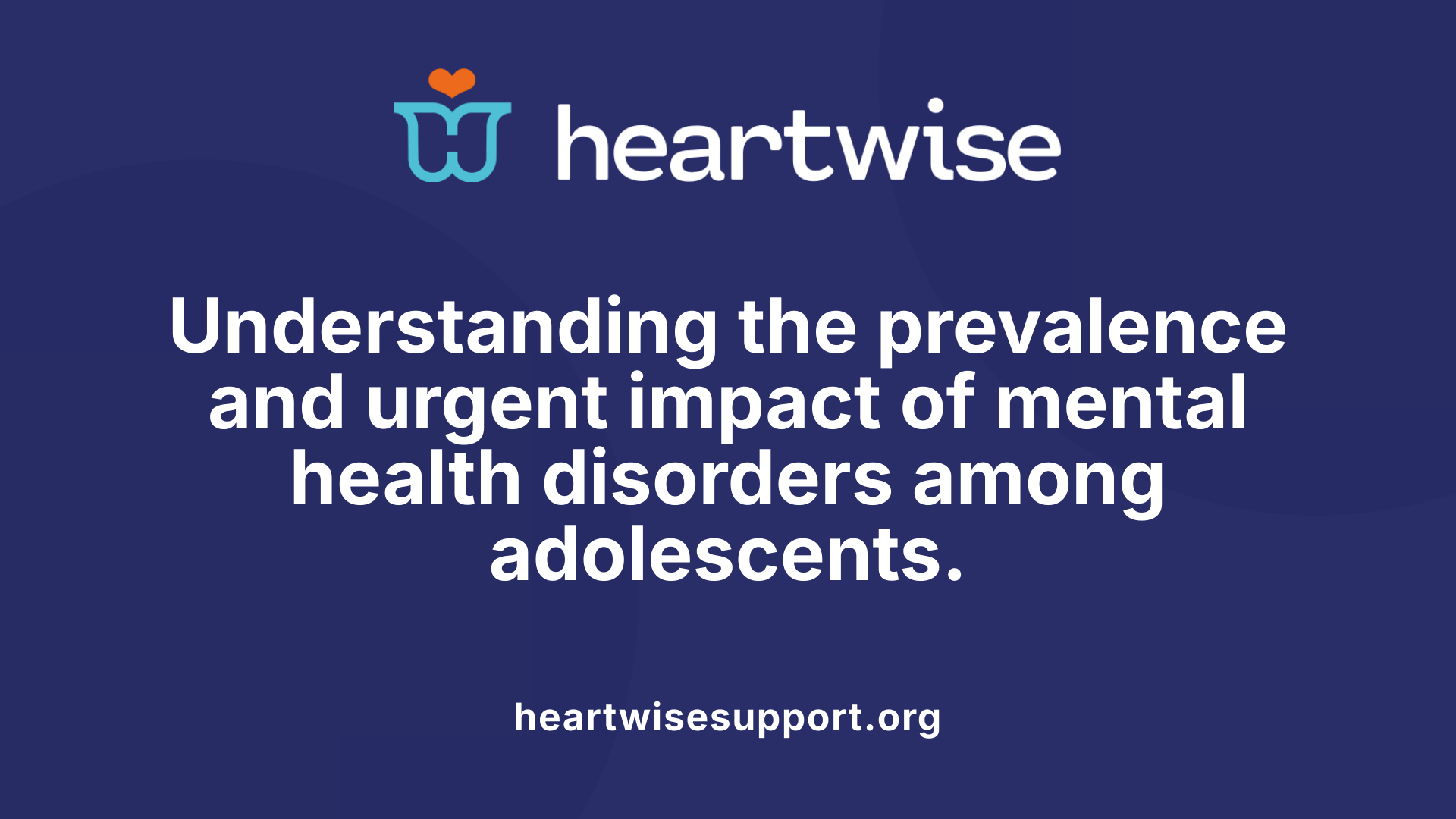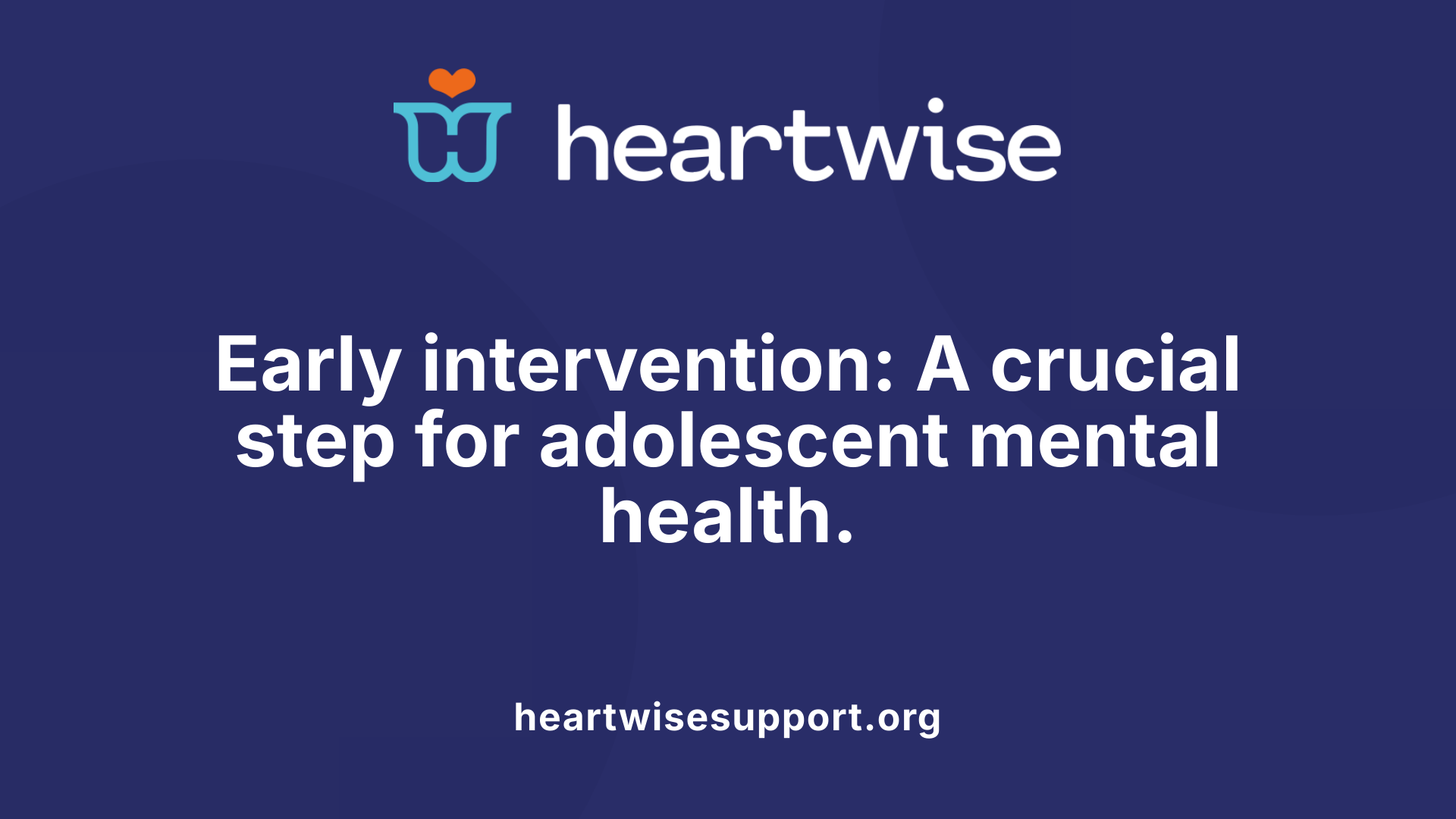Understanding the Landscape of Teen Mental Health
Adolescence is a phase of significant transformation, defined by rapid physical, emotional, and cognitive changes that make teenagers particularly prone to a variety of mental health challenges. These issues, which affect about one in seven adolescents worldwide, range from anxiety and depression to behavioral disorders. Addressing these concerns through therapy and counseling is crucial not just for immediate well-being, but for setting the foundation for healthy adult life. This article explores prevalent mental health issues among teens, barriers to effective treatment, the aim of therapy, and the role parents can play in fostering positive mental health outcomes.
Prevalence and Impact of Adolescent Mental Health Disorders

What are common mental health disorders among adolescents and their prevalence?
Common mental health disorders affecting adolescents include anxiety disorders, depression, ADHD, and eating disorders. Anxiety disorders are particularly prominent, impacting around 4.4% of 10-14-year-olds and 5.5% of those aged 15-19. Depression rates show that about 1.4% of younger teens and 3.5% of older teens are affected. Moreover, ADHD is reported in approximately 2.9% of 10-14-year-olds and 2.2% in the older group. Other disorders like conduct disorder affect 3.5% of younger adolescents and 1.9% of older ones, while eating disorders present in around 0.1% among 10-14-year-olds and 0.4% in the 15-19 age group.
The global landscape indicates that one in seven individuals aged 10-19 experiences a mental disorder. In the United States, nearly 20.3% of adolescents were diagnosed with a mental health condition as of 2023. Alarmingly, data reveals that 40% of U.S. high school students reported ongoing feelings of sadness or hopelessness, and 20% have seriously contemplated suicide. These statistics highlight the urgent need for increased awareness, prevention, and effective treatment strategies to support the mental well-being of adolescents, ensuring they have the resources needed to navigate their formative years.
Addressing Barriers to Mental Health Care for Adolescents

What are the barriers to adolescent mental health treatment and potential solutions?
Adolescents face numerous barriers when trying to access mental health treatment. One significant issue is stigma, which can prevent young people from seeking help due to fear of judgment. Geographical access also plays a role, as many adolescents live in areas with few mental health resources, making it physically challenging to receive care.
Financial constraints further complicate access. Many families struggle to afford mental health services, especially if they are uninsured or underinsured. Additionally, there is a shortage of qualified mental health professionals, which means that even when adolescents want help, they may have to wait extended periods for appointments.
The COVID-19 pandemic has exacerbated these problems, with increased incidences of anxiety, depression, and suicidal thoughts among youth.
To address these challenges, several potential solutions have emerged:
- Increase mental health literacy among teenagers, parents, and educators to reduce stigma.
- Integrate mental health services into pediatric care, allowing for more comprehensive support.
- Utilize telemedicine, which can provide flexible access to therapy and counseling remotely.
- Policy reforms are essential to enhance funding for mental health services, aiming to reduce stigma and improve accessibility.
- Improve the therapeutic alliance by matching adolescents with culturally competent therapists.
By addressing these barriers and implementing these solutions, we can create a more supportive environment for adolescents seeking mental health treatment.
The Importance of Early Intervention in Teen Mental Health

Why is early intervention crucial for adolescent mental health issues?
Early intervention is crucial for adolescent mental health issues due to the fact that about 50% of all mental disorders begin by age 14. This statistic emphasizes the urgency of providing timely support to prevent these conditions from escalating into more severe problems. Mental health disorders, particularly anxiety and mood disorders, contribute significantly to the disease burden among young people, necessitating the adoption of effective and proactive strategies.
Adolescents frequently encounter obstacles like social stigma and limited access to mental health care, which can delay their treatment. By identifying and addressing these issues early, we can significantly reduce the risk of complications, including substance abuse and self-harm. Early detection and intervention not only facilitate healthier emotional and social development but also contribute to long-term well-being.
Impact on long-term outcomes
The consequences of untreated mental health issues during adolescence can extend well into adulthood. Those who do not receive timely support may face persistent challenges related to their mental health, limiting their life opportunities and overall quality of life. For instance, mental health issues are linked to academic difficulties, strained relationships, and even increased mortality risks.
Timely intervention can enhance coping strategies, improve self-esteem, and promote resilience, equipping adolescents with the tools they need to navigate life's challenges. Therefore, prioritizing early mental health support is essential not just for managing current issues but also for securing a healthier future for our youth.
Role of Therapy and Counseling in Teen Mental Health

What therapy approaches are effective for adolescent mental health, and how do they work?
Effective therapy approaches for adolescent mental health include:
- Cognitive Behavioral Therapy (CBT): This method helps modify negative thought patterns and behaviors, equipping teens with strategies to handle challenges effectively.
- Dialectical Behavior Therapy (DBT): Focused on emotional regulation, DBT aids adolescents in managing intense feelings and developing coping mechanisms for distress.
- Motivational Interviewing: This approach encourages teens to articulate their reasons for change, enhancing their commitment to treatment.
- Exposure and Response Prevention: Particularly effective for anxiety disorders, this form of therapy gradually exposes teens to fears in a controlled environment, helping them build resilience.
Therapies can be structured in various formats: individual sessions, group discussions, or family therapy, with an increasing prevalence of online options. Hybrid models that combine in-person and digital interactions often yield the best results. Comprehensive assessments are essential to tailor treatment plans that cater to the unique needs of each adolescent.
What are the benefits of therapy for adolescents?
Therapy offers numerous benefits for adolescents, including:
- Improved emotional regulation: Therapy teaches teens to process and handle their emotions constructively.
- Enhanced self-awareness: Adolescents learn about their thoughts and behaviors, fostering introspection that aids personal growth.
- Better social skills: By processing feelings and experiences in a supportive environment, teens develop healthier relationships and communication skills.
- Coping strategies: Therapies equip youth with tools to manage stress, academic pressure, and interpersonal conflicts effectively.
As mental health challenges become increasingly prevalent among adolescents, these therapy approaches are vital for proactive intervention, ultimately leading to improved well-being and life outcomes.
Parental Support: A Cornerstone in Adolescent Mental Health

How can parents support their adolescent child's mental health?
Parents play a vital role in supporting their teens' mental health during this critical developmental stage. One of the most effective ways to assist is by maintaining open communication. Encouraging teens to express their feelings fosters a safe space for them to share their thoughts and concerns without fear of judgment.
Attention and presence are crucial. Acknowledging that mood swings and self-doubt are common during adolescence is important. Establishing clear boundaries can help teens feel secure. Reinforcing positive behaviors through praise enhances their self-esteem, an essential factor in their emotional resilience.
Moreover, guiding adolescents to disconnect from social media can reduce anxiety triggered by online comparisons. Promoting healthy stress management techniques is equally beneficial. Activities like exercise, mindfulness practice, or journaling can provide valuable outlets for emotions.
Respecting their growing need for independence while remaining supportive ensures that adolescents have the guidance they need to navigate emotional and social challenges effectively.
Importance of parental involvement
Parental involvement significantly impacts adolescents' mental health outcomes. Statistics show that strong family bonds can protect against negative outcomes such as substance use and violence. Open conversations about mental health can reduce stigma, encouraging teens to seek help when needed.
Involving family members in counseling can improve communication and understanding within the household, fostering an environment where adolescents feel supported. This collaborative approach empowers teens to develop resilience and coping strategies, proving essential in addressing mental health issues early on.
By being engaged and approachable, parents can significantly contribute to their teens’ emotional well-being and overall development.
Therapy’s Vital Role in Adolescent Expression and Understanding
What is the importance of therapy and counseling in promoting mental well-being in adolescents?
Therapy and counseling are essential for enhancing mental well-being in adolescents. They offer a secure and confidential environment where young people can express their thoughts and feelings without judgment. This emotional outlet is crucial during a period marked by significant personal and social changes.
The therapeutic relationship, built on trust and empathy, is key in fostering adolescents' personal growth and healing. Through regular sessions, teens can explore their emotions and develop coping mechanisms to manage challenges effectively. Therapy also aids in addressing specific emotional and behavioral issues that may arise during adolescence.
How do counseling benefits aid teens?
Adolescent counseling carries numerous benefits:
- Improved Communication Skills: Therapists encourage teens to express themselves clearly, enhancing their ability to communicate with peers and family.
- Enhanced Self-Esteem: Regular sessions help adolescents recognize their strengths, fostering a healthier self-image.
- Coping Strategies: Counselors teach vital skills for managing stress and navigating difficult situations, thus preventing harmful behaviors such as substance abuse.
School counseling programs further contribute by promoting social-emotional learning (SEL), vital for academic success and emotional health. Through tailored strategies, therapy equips adolescents with the tools needed to navigate life's challenges, improve relationships, and foster resilience.
The Influence of Social Media and Academic Pressure on Teen Mental Health
What role do external factors like social media and academic pressure play in teenage mental health issues?
External factors like social media and academic pressure significantly impact mental health among teenagers. Social media can lead to detrimental effects, such as increased feelings of inadequacy through cyberbullying and negative comparisons. This phenomenon is especially pronounced among adolescents with low self-esteem.
Increasingly, research shows that excessive social media use, particularly when teens spend over three hours a day online, is correlated with higher rates of depression, anxiety, and suicidal ideation. The platforms often serve as a double-edged sword: while they can foster communities and support networks, they can also cause anxiety and distress due to unrealistic life portrayals.
Moreover, academic pressure can compound these mental health challenges. Striving for high grades and the competition for college admissions put emotional stress on teens, potentially leading to conflicts in parent-child relationships, which further exacerbate mental health issues. For many, the pressure to excel academically creates an overwhelming environment that can intensify feelings of inadequacy and anxiety.
Therefore, it's essential to recognize the complex and multifaceted nature of these external factors impacting adolescent well-being. Addressing these issues requires a holistic approach that incorporates open communication and supportive environments at both school and home.
Building a Supportive Framework for Adolescent Well-being
Mental health is an integral part of a teenager's journey toward adulthood, with pandemics of anxiety, depression, and other disorders affecting millions globally. Early intervention, backed by family support and therapy, can make a significant positive impact, reducing long-term risks. Parents, schools, and communities all hold pivotal roles in creating environments that promote mental wellness, ensuring that the youth have the resources and support necessary to thrive despite the various challenges they encounter. It is through collective efforts that we can dismantle the barriers that plague teen mental health care and promote a healthier future for the next generation.
References
- Mental health of adolescents - World Health Organization (WHO)
- Addressing Teen Mental Health Challenges
- Interventions for Adolescent Mental Health: An Overview of ...
- How Does Therapy Improve the Mental Health of Teens?
- Tackling Teenage Challenges: The Role of Adolescent Counseling
- Teen Therapy: Addressing Adolescent Challenges with Professional ...
- A Guide to Adolescent Mental Health - Never Alone Treatment Center











